No One Ever Told Me
Good Grief!
Published
3 years agoon

By Dr. Ralph Vencill
No one ever told me that grief would be such an intense part of our journey. My upbringing from a non-Christian background as well as some of the modeling that was presented to me from men of the church developed a mentality that set me down a difficult path.
“Walk in strength and confidence!”
“Be strong and courageous!”
While these statements are true in context, they don’t address every moment of life. They don’t teach you the essentials of being a real man, embracing the fullness of who God called you to be.
Over the past three years I was exposed to a flaw in my armor. My eyes were opened to see how grief had been part of my life since my childhood and that I had suppressed that grief to the point of denial. In the midst of this realization, I found out I was broken. How could this be? I felt I was finally coming into my best season of life. I felt I had finally overcome some major challenges to the point that I would walk at a different level, but amid this season, I had created a normal that embraced an unhealthy mindset and lifestyle.
That mindset, my outward strength, became a prized plaque that I displayed proudly on my wall. The award I wore around my neck. The trophy I displayed and talked about as if it were something to brag about. Through all my education, all the leadership development seminars and classes, no one ever dared to address or question this area of my life. I appeared healthy. I appeared well developed, but the truth is, I was a full-time actor in my own drama, and I didn’t realize it.
In my extra education classes for chaplain ministry, I was able to see the walls I had built around my grief that prevented me from confronting all the loss in my life. I blew off each incident as if it were not a big deal. My answer was always, “God is all I need.” God is enough, but He created us to need each other and to experience these elements in life.
Matthew 14:13 (NLT) tells us of the notification of the death of John the Baptist and Jesus’ response. “As soon as Jesus heard the news, he left in a boat to a remote area to be alone.” Jesus got away to grieve. If Jesus saw this need in His life, shouldn’t we do the same? This was not my practice. It wasn’t something I saw a need to do. I would like to say I worked through my loss, but the truth was, I buried it.
Jesus got away to grieve. If Jesus saw this need in His life, shouldn’t we do the same? This was not my practice. It wasn’t something I saw a need to do. I would like to say I worked through my loss, but the truth was, I buried it.
I shrugged off every heartache, every death, every betrayal as not important, and the hardened shell of my life thickened with each loss. This shell, which I internally thought to be protective by not allowing anyone to ever hurt me again, began to drain the life from me. It cost me every time I buried a loss rather than allowing it space to be what it was: a loss, the death of something in my life. I hid from the realization that a portion of me could be damaged by that loss.
This realization, this awareness, began to uncover and release some deep-seated pains in my life. I began to understand that I had suppressed all the pain of my childhood. I hadn’t allowed myself to express the anger for the loss of my innocence and the denial of love as a child.
I am so thankful for God’s continued hand of protection through this season of my life. I am also thankful that even in this season of my own pain, the Holy Spirit was faithful to come in and pour over our congregation the oil of His anointing and the healing wine of joy, providing a soothing presence to those under my ministry. I am grateful for how God used an inner healing ministry in Toledo, Ohio, called the Toledo Transformation Center. Its director, Sarah Williams, and her staff did a presentation at our regional conference last year, which was very moving for me. I believed that they could help unlock some of the deeper issues I was struggling with, and they did.
I am also thankful for a loving wife and family who endured such a broken vessel for so many years. They experienced and suffered through the hardened presence of who I had become. They felt the pain of all the losses for me through all those years of ministry. They grieved. They cried. They had been in many ways the physical manifestation of the pain of my losses. When I look back at their pain now, I see it. Back then I couldn’t see anything.
Today I am moving towards a place of health and vitality. I feel many things now, and tears flow as needed. There are days I am not sure I like this, but I know that this is good for me. I know this is who God created me to be. I am thankful for the journey. I am blessed beyond measure.
Here are a few things that may help you process grief in your life:
- Talk about your loss.
- Sit with your grief, allowing yourself to feel the pain of the loss.
- Be accountable to someone regarding the long-term processing of your grief.
Under the Holy Spirit’s direction, you will find you can break down those walls that have created a barrier in your relationship with God and with others.
About the Author
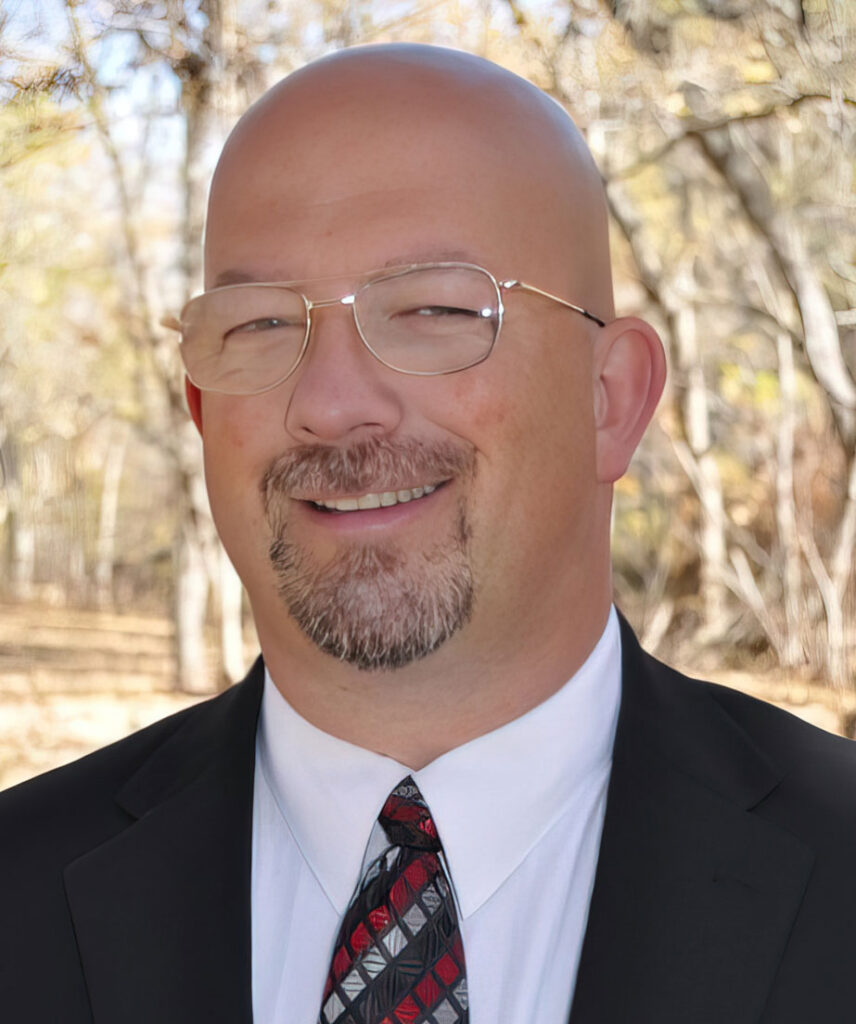
Dr. Ralph Vencill serves as lead pastor of Bellbrook Community Church, an Open Bible church in Bellbrook, Ohio, and a full-time chaplain with Ohio’s Hospice. He and his wife, Nancy Vencill, have four children, two of whom are married, and four grandchildren, with one on the way. Ralph is also a business owner and loves to travel.
No One Ever Told Me
Pastors Get Depressed Too
Published
2 months agoon
April 25, 2025By
Bart Bentley
“You pastors are all the same,” the counselor said, opening the door so I could leave. “You wait too long to get help. Bart, you should have been here six months ago.” He smiled at me, shook my hand, and I left. My first counseling appointment for depression was finished, as were my failed efforts to fix myself by myself.
Too often it is assumed that pastors are immune to such mental ailments as depression or anxiety. It is thought that their connection with God should be sufficient to sustain them. If a pastor does, in fact, succumb to a mental ailment, it is evidence that their relationship with the Lord is deficient in some way. Personally, I have never subscribed to that train of thought – at least consciously. But subconsciously, it has felt true. Shouldn’t the solution to mental issues be found in prayer or at the altar or in fasting and meditating on scripture? After all, there are many awe-inspiring testimonies of people being delivered by God through all these things. Yet by early 2021, I had done all I knew how to do spiritually, and it still felt like the wheels were coming off of my life.
Too often it is assumed that pastors are immune to such mental ailments as depression or anxiety.
Looking back, it is clear why despair crept in when it did. The way in which I conducted ministry left me constantly depleted with no reserve for emergencies. When the pandemic hit, it took an intense and sustained effort for me to lead well through the controversies and challenges. The church recovered nicely. I didn’t.
My mentality became progressively darker. By the time 2021 arrived, all the exits from my downward spiral toward darkness seemed to be barred shut. It affected everything: my family, the church, even my physical health. My behavior was noticeably different – I was losing the ability to act like myself, let alone be myself. It seemed there was no way out, and my despair had become so strong that I was becoming worried my family and church would get caught in the inevitable implosion.
In prayer, I asked God to release me from ministry. The church needed an attentive and functional pastor, and I was no longer that person. But in prayer, God very clearly denied my request. This happened repeatedly. At the time I couldn’t understand why God felt so silent and distant when I asked Him to lift my darkness yet responded loud and clear when it came to my staying in ministry. Nonetheless, I knew I needed to have a discussion with my board of elders.
I have never dreaded a board meeting as much as I did that one. A “Personal Update” was at the bottom of the agenda. When we reached that part of the meeting, the room grew silent. I struggled for the words to open the conversation, and gradually they came. The elders listened without a word as their pastor – the one who should have it all together – told them of his mental struggles. I confessed that I was still declining and was at a loss as to what to do. My wife also shared some candid observations. I ended with the fact that I had prayed and prayed but felt I wasn’t supposed to resign.
… my despair had become so strong that I was becoming worried my family and church would get caught in the inevitable implosion.
One of the elders broke the silence: “I don’t think you are supposed to resign either. But you can’t go on like this.” One by one, the elders proceeded to ask careful questions and share helpful comments. They lovingly (but quite firmly) directed me to outside counseling. I remember one elder gently bringing up the fact that I have directed dozens of people to counseling over the years and that I should not resist when the same was being done for me. I agreed with her though I dreaded meeting with a counselor. The elders prayed for me and the meeting concluded. I reluctantly found a counselor familiar with clergy issues and made an appointment.
When the topic of pastoral depression comes up among church leaders, I try to share two points in case someone is struggling under the radar. First, outside counseling is invaluable. Pastors have many reasons (or excuses) for resisting it. I certainly did. But past a certain point, we cannot fix ourselves. It’s like asking a cardiologist to perform open heart surgery on themselves; it doesn’t work. The second point I try to make is that there should be a trusted church leader who regularly checks up on the pastor’s mental wellbeing. Pastors have a tendency to hide their own struggles.
It was in counseling that I began to realize that much of my depression was the result of my own choices. Overwork, a complete lack of ministerial boundaries, self-imposed social isolation, a sedentary lifestyle, and a propensity to worry had all contributed. Progress in changing these habits came slowly (and still does).
… past a certain point, we cannot fix ourselves.
Depression has a sinister way of being self-perpetuating. Every effort is harder than it otherwise should be, and I had been inactive for too long. The shock of needing counseling jumpstarted me into action. My efforts were feeble at first: I began to exercise, walking on a trail or treadmill for a mile. I made myself talk to people outside church, even when I didn’t really want to. I began to regulate my self-talk, limit caffeine, and take a proper sabbath. These were very imperfect efforts, and in many cases left me utterly exhausted. But they were the beginning of a journey toward healthy and godly routines – routines that began to push the depression away.
Many months after that pivotal board meeting, I woke up one morning to a strange sensation: I felt rested and full of energy. I was eager to get the day started. I practically jumped out of bed before I took time to recognize that something had changed. What was it? Then the thought hit me: This is what it feels like to look forward to the day. I had completely forgotten what that felt like. The realization hit like an emotional load of bricks, but in a good way. There really is a way out of the darkness!
About the Author
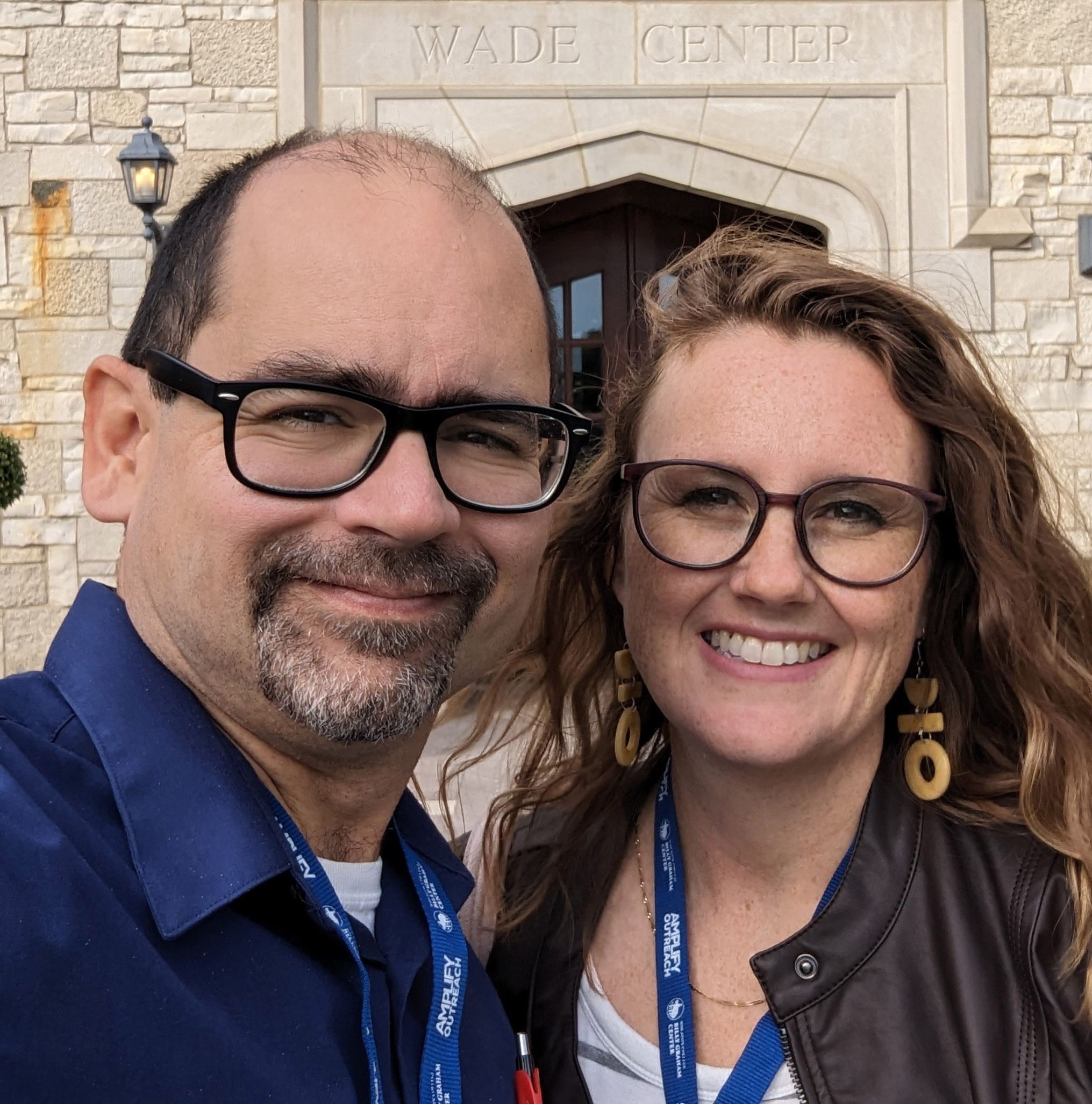
Bart Bentley
Bart Bentley was born and raised in Tujunga, California. After graduating from Eugene Bible College (now New Hope Christian College), he married Erin McElwee, and together they pastored students in Cedar Rapids, Iowa, for sixteen years. In 2013 he accepted a call to become the lead pastor at Journey Church Ministries in Loves Park, Illinois. Bart and Erin have three children; their eldest daughter is currently attending college in Dubuque, Iowa.
No One Ever Told Me
Planted and Plucked Up: Surrendering Expectations in Church Planting
Published
10 months agoon
September 1, 2024
Church planting always starts with a “yes.” We say yes and step out in faith to build a church – His church. The words of my collegiate pastor echo in my mind: “There will come a time when you have the chance to write God a blank check for your life.” My husband and I had a chance to live out Jesus’ words in Luke 9:24: “For whoever wants to save their life will lose it, but whoever loses their life for me will save it” (NIV). We signed our blank check on life to follow Him by saying “yes” to joining our closest friends in a journey to plant Seek City Church in Burlington, Vermont.
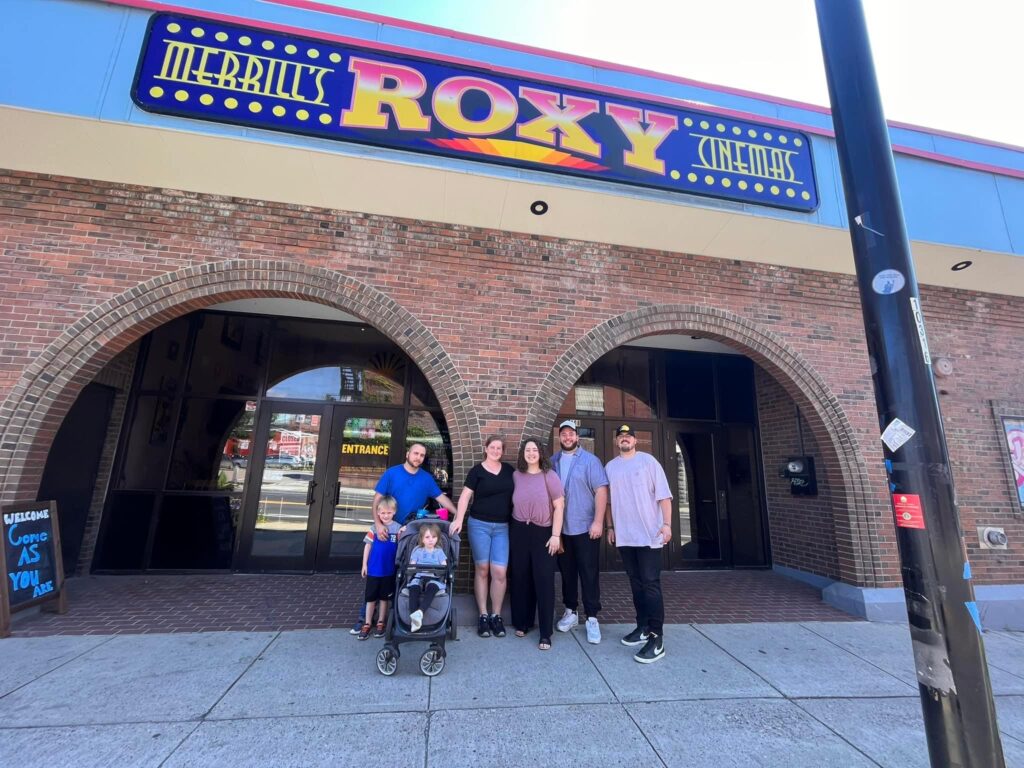
Burlington is one of the most unchurched cities in the United States. There is a darkness over this city originating from many things: crime, drug addiction, homelessness, New Age spirituality, and deep-seated church hurt. Our team had a fresh vision and mountains of faith. We had leaders and coaches speaking life into us, encouraging us, and building us up to carry out this vision of salvation for the Northeast. We expected our church to be booming, that we’d start a movement that would spread like wildfire. Unfortunately, these expectations became my goal in our ministry – and everything else took a backseat.
I started feeling buried by the traditions and expectations of what a “successful” church plant looks like.
It starts with “yes,” but how does our “yes” fare when expectations are not met? When doors begin to close? When vision just isn’t enough? When strategy has run out? When we remain steadfast and the growth that everyone says will come…doesn’t? For us, planting began to feel like being buried. The soil was heavy with the lack of growth of our team, financial stress, distance from family and support, job loss, and a personal ongoing battle with infertility. These challenges made the already laborious journey of church planting seem nearly impossible. I started feeling buried by the traditions and expectations of what a “successful” church plant looks like.
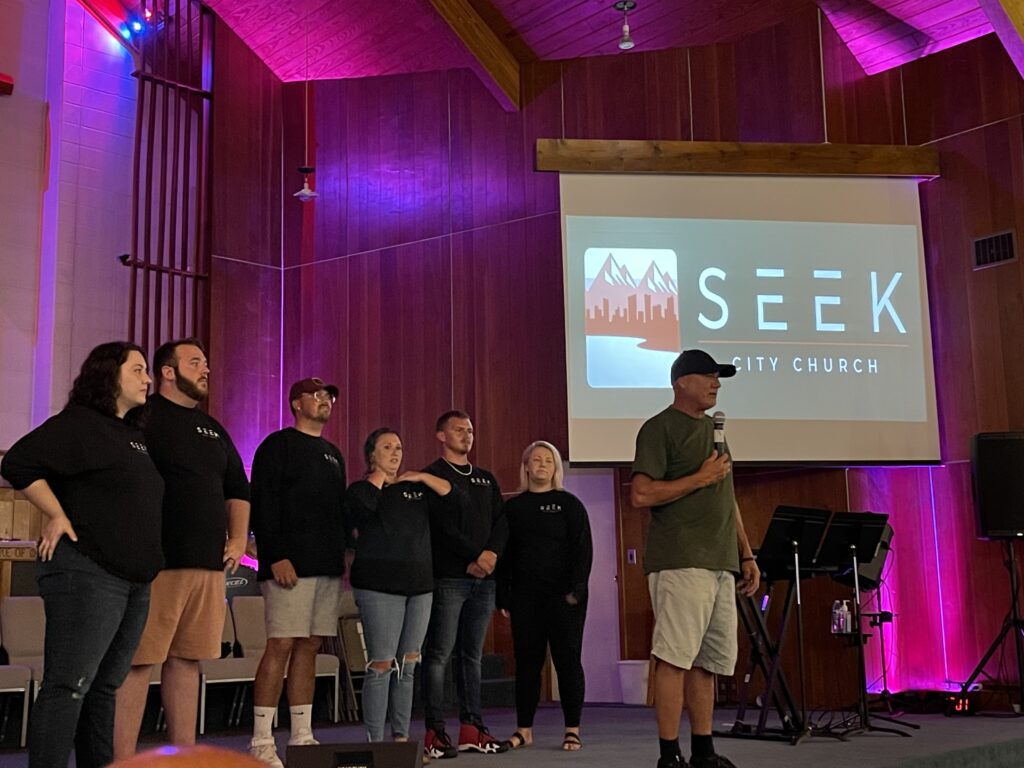
I thought we needed the building, lights, signage, social media presence, and all other modern amenities, and I worked hard to obtain these things. But I was missing the one thing, besides Jesus, that we needed – the people! I was creating a place that looked and operated like all the churches I had seen, for people who wanted nothing to do with that kind of church. I was busy building a place for people to come, to fit neatly into this church box, when that wasn’t what the people in my city needed. That wasn’t who they needed us to be. That wasn’t who God needed us to be. In my well-meaning efforts, I didn’t let God lead me to reach people the way He wanted me to. The Lord began speaking the words from 1 Corinthians 3:7 into my heart: “So neither the one who plants nor the one who waters is anything, but only God, who makes things grow.” When we said yes to the church plant, all the Lord was asking was for us to be obedient in following Him to fulfill the Great Commission. He didn’t ask us to have a foolproof strategy or methodical plans. He asked us to walk with Him and watch Him give the growth, especially when the growth looked nothing like we had planned.
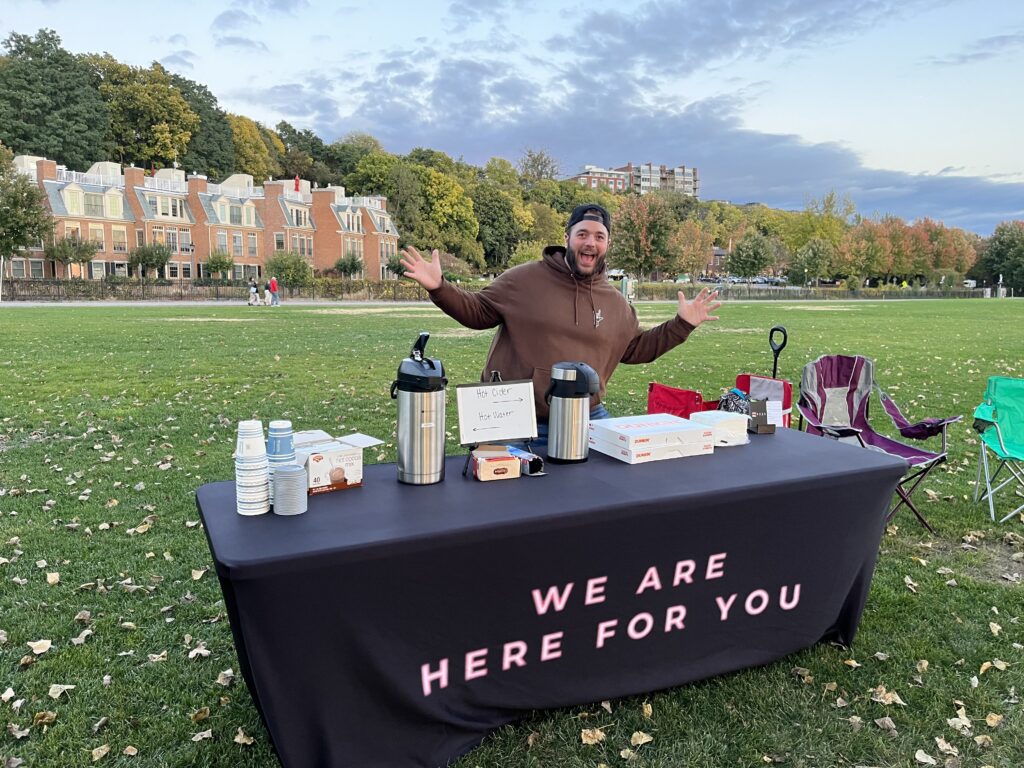
It is worth it to follow Him when our plan doesn’t work out, when the church has no new visitors for weeks or months on end. It is worth it to surrender our expectations, and everyone else’s, for what He wants for His church. Maybe all the work, stress, worry, and doubt is for the one He wants – one person, one life, one encounter, one moment. Isn’t the uncertainty of our plan and the perceived failure of our efforts worth the one? Maybe instead of rows of seats filled with eager hearts, it’s all just for one seat, one heart. Would that be enough? Would you still say yes?
Maybe all the work, stress, worry, and doubt is for the one He wants – one person, one life, one encounter, one moment
God, being gracious and merciful, led us out of our planting season. In His sovereignty, He plucked us up from our mission field, and is continuing to lead us through a season of transition. The Lord has taught me that following Him will look nothing like we expect, and I praise Him for it. Church, I’d challenge you with this: Do we dare rethink tradition in order to reach the unreachable? Are we forsaking the “one” for the image of a successful church? How is the Lord stirring the hearts of the church to think differently in order to look, love and lead differently? Psalm 77:13 says “Your way, O God, is holy”. I pray that we all would follow His way, and not our own.
About the Author

Erika VanArtsdalen
Erika VanArtsdalen is a follower of Jesus, wife to her husband Kelly, and church planter. She has been blessed with ministry opportunities around the country, such as leading youth and collegiate ministry in Ohio, serving a new church plant in North Carolina, and launching Seek City Church in Vermont. Erika enjoys serving children with disabilities in her community in her day job as a speech language pathologist. She also loves spending time with her family, baking, finding new coffee shops, and playing with her English bulldog, Myla. Erika and her husband recently relocated to Buffalo, New York, to begin another church planting journey!
No One Ever Told Me
Plantados y Arrancados: Cómo renunciar a nuestras expectativas en la plantación de iglesias
Published
10 months agoon
September 1, 2024
La plantación de iglesias siempre comienza con un «sí». Decimos sí y salimos con fe para establecer una iglesia – Su iglesia. Las palabras de mi pastor de la universidad resuenan en mi mente: «Llegará un momento en el que tendrás la oportunidad de escribirle a Dios un cheque en blanco para tu vida”. Mi esposo y yo tuvimos la oportunidad de vivir realmente las palabras de Jesús en Lucas 9:24: «Porque todo el que quiera salvar su vida, la perderá; y todo el que pierda su vida por causa de mí, este la salvará.» (RVR1960). Firmamos nuestro cheque en blanco de la vida para seguirle diciendo «sí» a unirnos a nuestros amigos más cercanos en un viaje para plantar Seek City Church en Burlington, Vermont.

Burlington es una de las ciudades con menos iglesias en los Estados Unidos. Hay una oscuridad sobre esta ciudad derivada de muchas causas: la delincuencia, la drogadicción, la falta de vivienda, la espiritualidad de la Nueva Era y un arraigado dolor en la iglesia. Nuestro equipo contaba con una visión fresca y montañas de fe. Teníamos líderes y entrenadores que nos daban vida, nos animaban y nos edificaban para cumplir con la visión de salvación del noreste. Esperábamos que nuestra iglesia floreciera, que iniciásemos un movimiento que se extendiera como un fuego arrasador. Desafortunadamente, estas expectativas se convirtieron en mi meta en nuestro ministerio, y todo lo demás pasó a ocupar un segundo plano.
Empecé a sentirme sepultada por las tradiciones y las expectativas de lo que es una plantación de iglesias «exitosa».
Comienza con un «sí», pero ¿cómo reacciona nuestro «sí» cuando no se cumplen las expectativas, cuando las puertas empiezan a cerrarse, cuando la visión no es suficiente, cuando la estrategia se ha agotado, cuando nos mantenemos firmes y el crecimiento que todos dicen que llegará… y no llega? Para nosotros, plantar empezó a ser como estar enterrados. La falta de crecimiento de nuestro equipo, el estrés financiero, la distancia de la familia y el apoyo, la pérdida del trabajo y una batalla personal continua contra la infertilidad hacían del terreno una carga pesada. Estos desafíos hacían que el ya laborioso viaje de plantar una iglesia pareciera casi imposible. Empecé a sentirme sepultada por las tradiciones y las expectativas de lo que es una plantación de iglesias «exitosa».

Pensé que necesitábamos el edificio, las luces, la publicidad, la presencia en las redes sociales y todas las demás comodidades modernas, y trabajé duro para conseguir estas cosas. Pero aparte de Jesús, me faltaba la única cosa que necesitábamos: ¡la gente! Estaba creando un lugar que parecía y funcionaba como todas las iglesias que había visto, para personas que no querían tener nada que ver con ese tipo de iglesia. Estaba ocupado construyendo un lugar para que la gente viniera, para que encajara perfectamente en esta iglesia, cuando eso no era lo que la gente de mi ciudad necesitaba. Eso no era lo que ellos necesitaban que fuéramos. Eso no era lo que Dios necesitaba que fuéramos. En mis esfuerzos bien intencionados, no dejé que Dios me guiara para alcanzar a la gente de la manera que Él quería. El Señor comenzó a hablar a mi corazón las palabras de 1 Corintios 3:7: «Así que ni el que planta es algo, ni el que riega, sino Dios, que da el crecimiento.». Cuando dijimos «sí» a la plantación de la iglesia, todo lo que el Señor nos pedía era que fuéramos obedientes en seguirle para cumplir la Gran Comisión. No nos pidió que tuviéramos una estrategia infalible o planes metódicos. Nos pidió que camináramos con Él y viéramos cómo Él daba el crecimiento, especialmente cuando el crecimiento no lucía como lo habíamos planeado.

Vale la pena seguirle cuando nuestro plan no funciona, cuando la iglesia no tiene nuevos visitantes durante semanas o meses. Vale la pena renunciar a nuestras expectativas, y a las de los demás, por lo que Él quiere para Su iglesia. Tal vez todo el trabajo, el estrés, la preocupación y la duda es para lo que Él quiere: una persona, una vida, un encuentro, un momento. ¿Acaso no vale la pena la incertidumbre de nuestro plan y la sensación de fracaso de nuestros esfuerzos? Quizá en lugar de filas de asientos llenos de corazones ansiosos, todo sea sólo por un asiento, un corazón. ¿Sería eso suficiente? ¿Seguiría diciendo «sí»?
Tal vez todo el trabajo, el estrés, la preocupación y la duda es para lo que Él quiere: una persona, una vida, un encuentro, un momento.
Dios, lleno de gracia y misericordia, guio a nuestro equipo fuera de nuestra temporada de siembra. En Su soberanía, Él nos arrancó de nuestro campo misionero y nos llevó a una nueva ciudad para amar de manera diferente. Este año, nos hemos comprometido a llevar a Jesús a Buffalo, Nueva York. El Señor me ha enseñado que no se parecerá en nada a lo que esperamos, y le alabo por ello. Iglesia, me gustaría desafiarnos a todos con esto: ¿Nos atreveremos a reexaminar la tradición para alcanzar lo inalcanzable? Sin quererlo, ¿hemos estado abandonando al «uno» por la imagen de una iglesia de éxito? ¿Cómo está moviendo el Señor el corazón de Su Iglesia para que piense, mire, ame y dirija de manera diferente? El Salmo 77:13 dice: «Oh Dios, santo es tu camino.». Oro para que todos elijamos seguir Su camino y no el nuestro.
Sobre la Autora

Erika VanArtsdalen
Erika VanArtsdalen es una discípula de Jesús, esposa de Kelly y plantadora de iglesias. Ha sido bendecida con oportunidades de ministerio en todo el país, como dirigir el ministerio de jóvenes y universitarios en Ohio, servir en una nueva plantación de iglesia en Carolina del Norte y lanzar Seek City Church en Vermont. Erika disfruta sirviendo a niños con discapacidades dentro de su comunidad durante su jornada laboral diaria como patóloga del lenguaje. También disfruta el pasar tiempo con su familia, la repostería, descubrir nuevas cafeterías, y jugar con su bulldog inglés, Myla. Erika y su esposo se mudaron recientemente a Buffalo, Nueva York, ¡para comenzar otro viaje de plantación de Iglesias!








